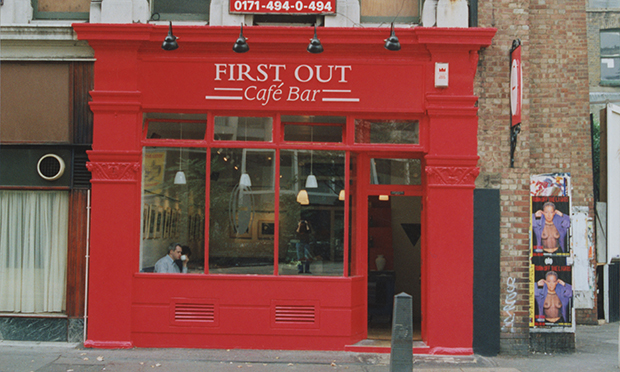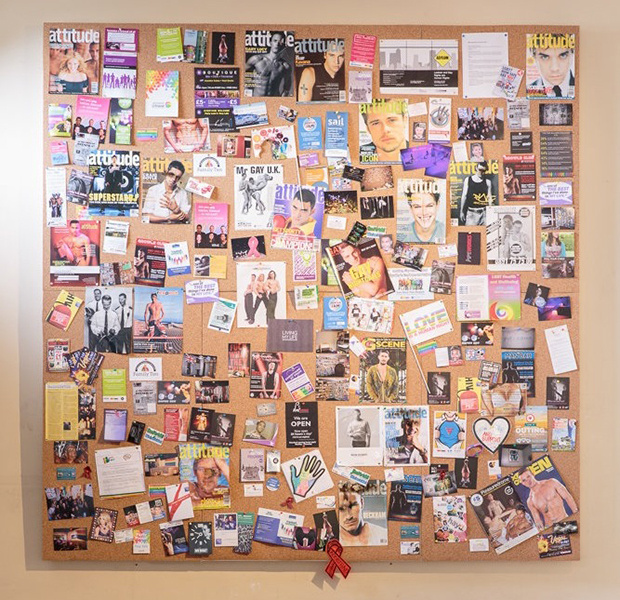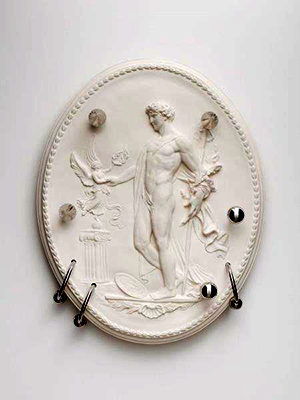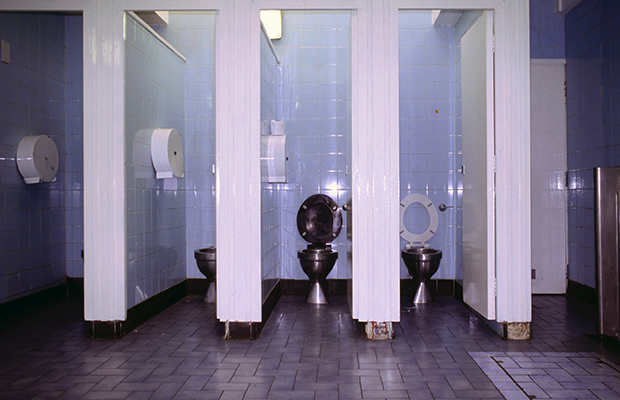Major Whitechapel Gallery exhibition to ‘shine light’ on London’s imperiled LGBT+ venues

Photograph: courtesy of Malcolm Comley and Robert Kincaid
Over 60 per cent of London’s LGBTQ+ venues closed their doors between 2006 and 2017 – falling from 125 to just 49.
Thankfully, the number rose in 2018 for the first time in 12 years, but only up to 52.
Now, a major new exhibition at the Whitechapel Gallery is set to examine the impact of these sweeping losses on the capital’s queer community.
Queer Spaces: London, 1980s – Today, which will be free to enter and runs from 2 April until 25 August, combines rarely-seen archives and new research with original work by artists concerned with LGBTQ+ cultural life.
New Yorker Tom Burr, whose work on queer spaces and city architecture has been hugely influential, is one of those taking part.

Photograph: courtesy of the artists and Arcadia Missa
Duo Hannah Quinlan and Rosie Hastings address contemporary queer community-formation.
Their work The Scarcity of Liberty #2 is a cork board featuring objects, leaflets and memorabilia gathered during visits to 170 gay bars across the UK.
Evan Ifekoya uses sound, collage and poetry to explore gender, blackness and queer nightlife culture, while Ralph Dunn’s photographic series Public Toilets “pays homage to historic gay cruising grounds in romantic portraits of public architecture”.

Photograph: Plastiques Photography, courtesy of the artist and Southard Reid
London-based sculptor Prem Sahib’s reflections on body modification and sexual expression are shown through reworkings of furnishings salvaged from the rubble of Shoreditch gay sauna Chariots, which was demolished in 2016.
The artworks will sit alongside archival material collated by University College London’s (UCL) Urban Laboratory which honours the rich histories of iconic LGBTQ+ venues, including the now-closed London Lesbian and Gay Centre and First Out Café.
UCL also presents findings from a London-wide study of queer venues, bringing to the fore a selection of unique stories.
These include The Black Cap, whose 2015 closure was met with protests, spurring the creation of grassroots campaign group the Black Cap Foundation.
A similar movement recently saw the Royal Vauxhall Tavern granted a 20-year lease, securing the future of the venue.

Photograph: courtesy of the artist
London Night Czar Amy Lamé, who along with the city’s mayor Sadiq Khan set up the LGBT Venues Charter in 2017 to help protect queer spaces, said: “I am delighted this exhibition is shining a light on the huge role London’s LGBT+ venues have played, and continue to play, in the capital’s diversity.
“For decades, London’s LGBT+ venues have provided a safe space to unite and socialise and are at the very heart of our city’s varied nightlife.
“London is open to all, and that’s why we are working hard to support LGBT+ venues and why I’m so pleased that after a decade of decline we have seen numbers stabilise.”
Queer Spaces: London, 1980s – Today is open from 2 April until 25 August at Whitechapel Gallery, 77-82 Whitechapel High Street, E1 7QX.
